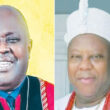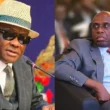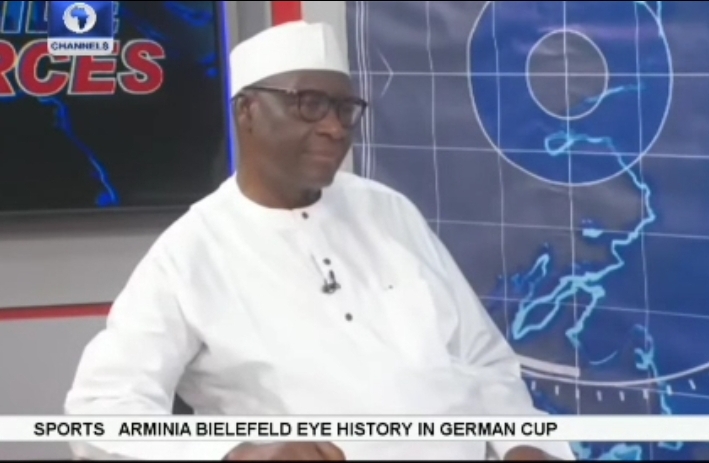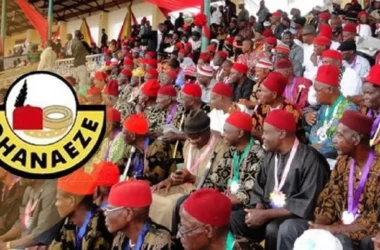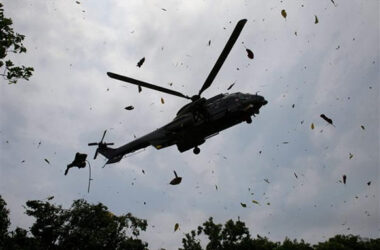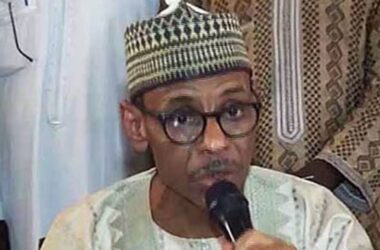Former Director-General of the National Orientation Agency (NOA), Garba Abari, has called for bold and unconventional strategies—including the engagement of mercenaries—to confront Nigeria’s deepening security challenges. He made this passionate appeal while speaking on Inside Sources with Laolu Akande on Channels Television on Friday.
He went on to describe the grim pattern of how insurgents ambush security formations, loot weapons, and erode the morale of soldiers—tactics that have continued to embolden terror groups across the region.
“Now, aside being overwhelmed, they up to now have not developed this attitude or this capacity to be on the offensive. They are always the victims. First, they get attacked, get killed.
In the process, reinforce the insurgents because they take away their arms. They attack military bases. They attack the roadblocks.
They attack them in the camps. They kill them in the process. They cart away their weapons.
Kill the morale of the living. Cart away arms and the munitions. Take away civilians and collect ransom, which they use to buy food and additional arms and munitions.
And even make contributions to other terror groups. I think the situation has become so dire that we cannot run away from the options of even bringing in mercenaries.”
Abari, who hails from Borno State and resides in Maiduguri, offered a sobering firsthand account of the deteriorating security conditions in Nigeria’s Northeast and broader regions. Reflecting on the long-standing promise by successive administrations to tackle insecurity, he lamented the lack of sustained progress despite policy pronouncements and budgetary allocations.
“…the security situation which the party made as one of its priority areas, one of its priority campaign areas, in 2015, in 2019.
In fact, President Bola [Tinubu] was even more empathic that the priority of his administration would be to deal with the insecurity in the country. Nothing tht without security, there will be no development, there will be no peace, there will be no progress. And for this, he promised to deal with this issue of insecurity and to make it the number one priority in 2023.”
Abari acknowledged President Bola Tinubu’s consistent engagement with security chiefs and the release of significant resources to address the threats. Yet, he argued that the situation continues to spiral out of control, citing the daily reality in Borno as evidence that conventional methods may no longer suffice.
“Resources have been given out. We see the President holding meetings with the security chiefs and the rest of them. I am from Borno, I am from Maiduguri. I live in Maiduguri. To date, my family lives in Maiduguri. I know the security situation there.”
In a bold recommendation, Abari suggested the country should now consider hiring foreign mercenaries to support the fight against terrorism, banditry, and insurgency. He warned that Nigeria’s security architecture is both overwhelmed and lacking the offensive capability to outmatch highly organized terrorist groups.
“Given the gravity of the situation now, I think we can even deal with mercenaries. Because the situation is really difficult. Number one, our security agencies are getting overwhelmed.”
Speaking on the Social Investment Programme, the analyst noted: “I’ve not seen that effective collaboration between the party and the government. The social investment programme is not only the programme of the president; it’s the programme of the party,” Abari said.
He lamented the lack of documentation and institutional memory within the party structures, suggesting that valuable experience gathered from 2016 to 2019 may have been lost due to poor archiving and insufficient transition planning.
“If the party headquarters had a functional library—assuming it has one—all these experiences, competencies, and capabilities that were developed should have been preserved to help guide the incoming government. Unfortunately, that doesn’t appear to be the case,” Abari added.
He stressed the significance of this moment in Nigeria’s political evolution: “This is 10 years of APC in government and slightly more than 10 years of the APC as a political party. This is actually a very convenient meeting point to assess both the record of the party and the government it has put in place over the past decade.”


